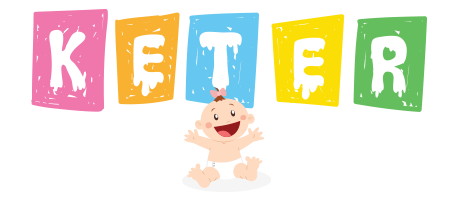
At what age can I stop Breastfeeding?
The American Academy of Pediatrics recommends exclusive breastfeeding for approximately the first six months of a baby's life, followed by breastfeeding in combination with complementary foods until at least 12 months of age. Mothers can continue to breastfeed for as long as she and her baby prefer. The benefits of breastfeeding depend on the dose, which means that the benefits of breastfeeding for nursing babies depend on the amount of breast milk they receive. This is supported by the positive health outcomes of exclusively breastfed infants compared to infants who have never or only partially breastfed
Breastfeeding provides a protective effect against respiratory diseases, ear infections, gastrointestinal diseases, diabetes and allergies, including asthma and atopic dermatitis. The rate of SIDS in breastfed infants is reduced by more than a third, followed by a consequent reduction in the number of breastfed compared to non-breastfed infants.
According to the CDC, one of the most effective preventative measures a mother can take to protect her baby's health is breastfeeding.
How Do I know if the Baby is getting enough breast milk?
The result: the vast majority of women about 95% earn enough milk if they receive timely support, because the milk supply is established in the first 3 to 4 weeks. Most babies only need 1.5 to 2 ounces of milk in the first month, and even as they get older, no more than 4 ounces at a time. The hard thing is that a picky baby is not always hungry, but most kids like to suck and pull if you let them. This does not mean that they even want or want to eat, and can have nappy pain and even overeating.
Some babies usually fall asleep during breastfeeding. A tick or hand can keep them focused during feeding. Weight control can be positive if you have doubts about weight gain. However, if your child seems to be poor, you can probably say with confidence that he has had enough of him, especially if he regularly bags and picks.
How to properly store Breast milk?
You may want to express or store breast milk when you get back to work, let other family members breastfeed your baby, or have it when you are out of the baby. Whatever the reason, you should learn how to properly store breast milk. The following are general guidelines for the safe handling and storage of breast milk:
- Wash your hands before breastfeeding or handling milk.
- Use only clean containers to store expressed milk. Use special collection containers for storing human milk. Do not use ordinary plastic or bottle bags to store milk.
- Freshly expressed milk can remain at room temperature for up to four hours.
- Use refrigerated milk within 48 hours.
- Freeze milk if you will not be using it within 24 hours. Frozen milk is good for at least three months.
Why does my Baby’s poop have a weird color?
Green poop. Yellow poop. Even grey poop. Babies light up some striking shades, from neon yellow to olive, and for parents who aren't used to a colorful top in their youth (and sometimes even those who are), this can be a cause for concern.
Real talk: it's probably not a big problem. Because very young children do not eat anything other than milk or artificial nutrition, the color of their stools is almost always caused by harmless factors related to the lining of the intestine and the way the milk is digested. Sometimes what the mother ate can increase the color of the stool, but this is not a reason to change the mother's diet.
How do Babies learn?
Children learn by exploring their environment, seeing, hearing, touching and tasting. They learn from exposure to new things and from repeated exposure to things that have happened in the past. As things happen over and over again, children begin to anticipate and anticipate what will happen next. In their lives, they develop expectations from people. These expectations are the basis of the first relationship between children and their carers, and it is this basis that helps children be prepared to learn and grow
That’s why the routines of caregiving are so important they give your baby the firm foundation on which to build their view of the world. They’ll do the learning part on their own. It’s up to the caregiver to lay the foundation.
What’s the most important thing I can do for my Baby?
This is the balance. Interacting with something new and different basically entices the child, because it is a novel. On the other hand, if everything is still the most important thing, it is also the simplest thing: to be there and to be available. The reason these interactions are so important is related to a child's brain development. Each interaction creates connections in the brain and the more the experience becomes, the stronger these connections are. The daily tasks of interacting with a newborn and the exchange of relationships between the child and the caregiver create a brain architecture that will be the basis for the rest of their lives. Children will learn the basics of self-regulation, how to calm down when upset, and how to deal with and respond to the world in the context of their closest relationships.
The best part? It doesn’t require anything fancy. All it requires is you.
